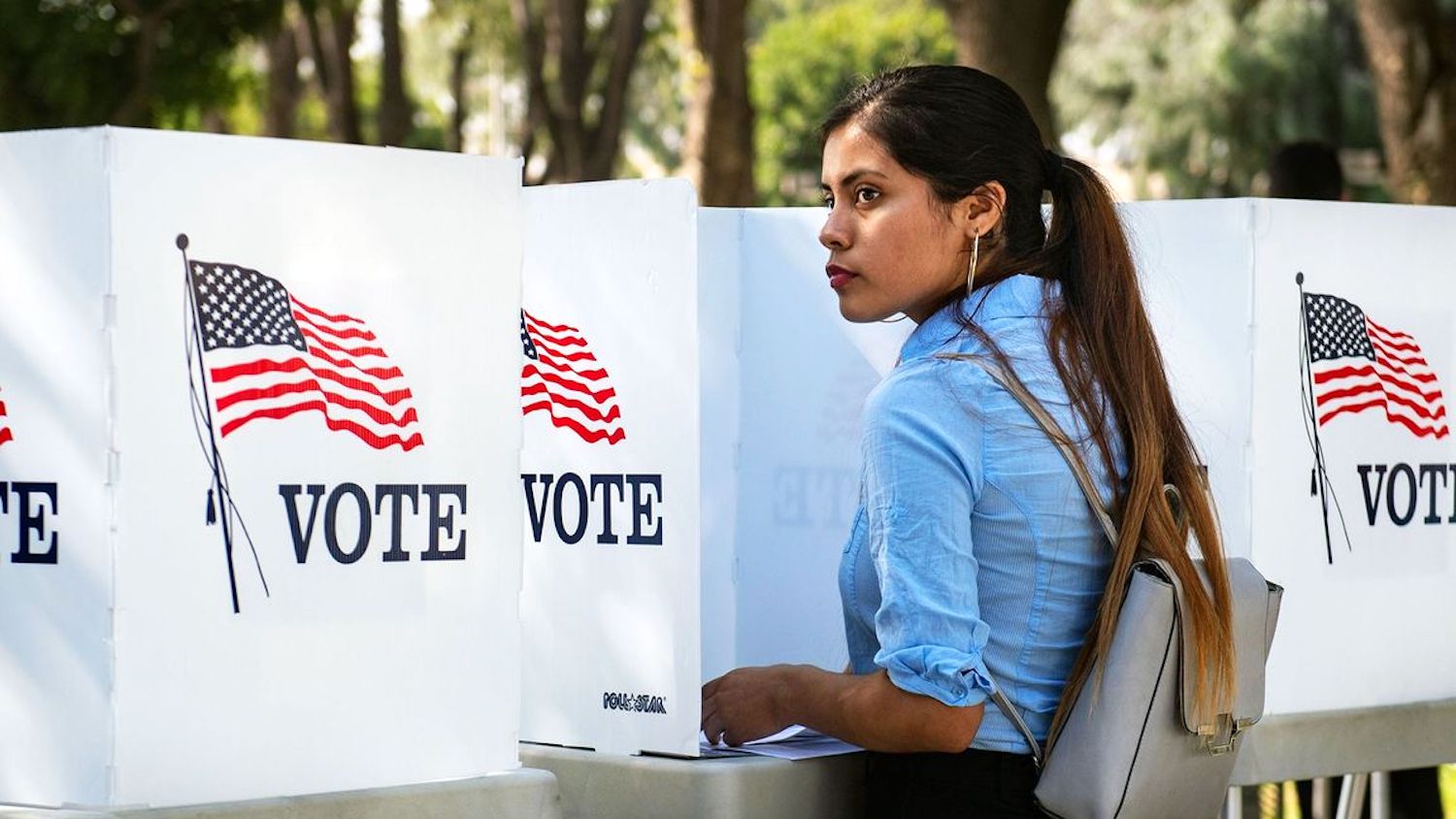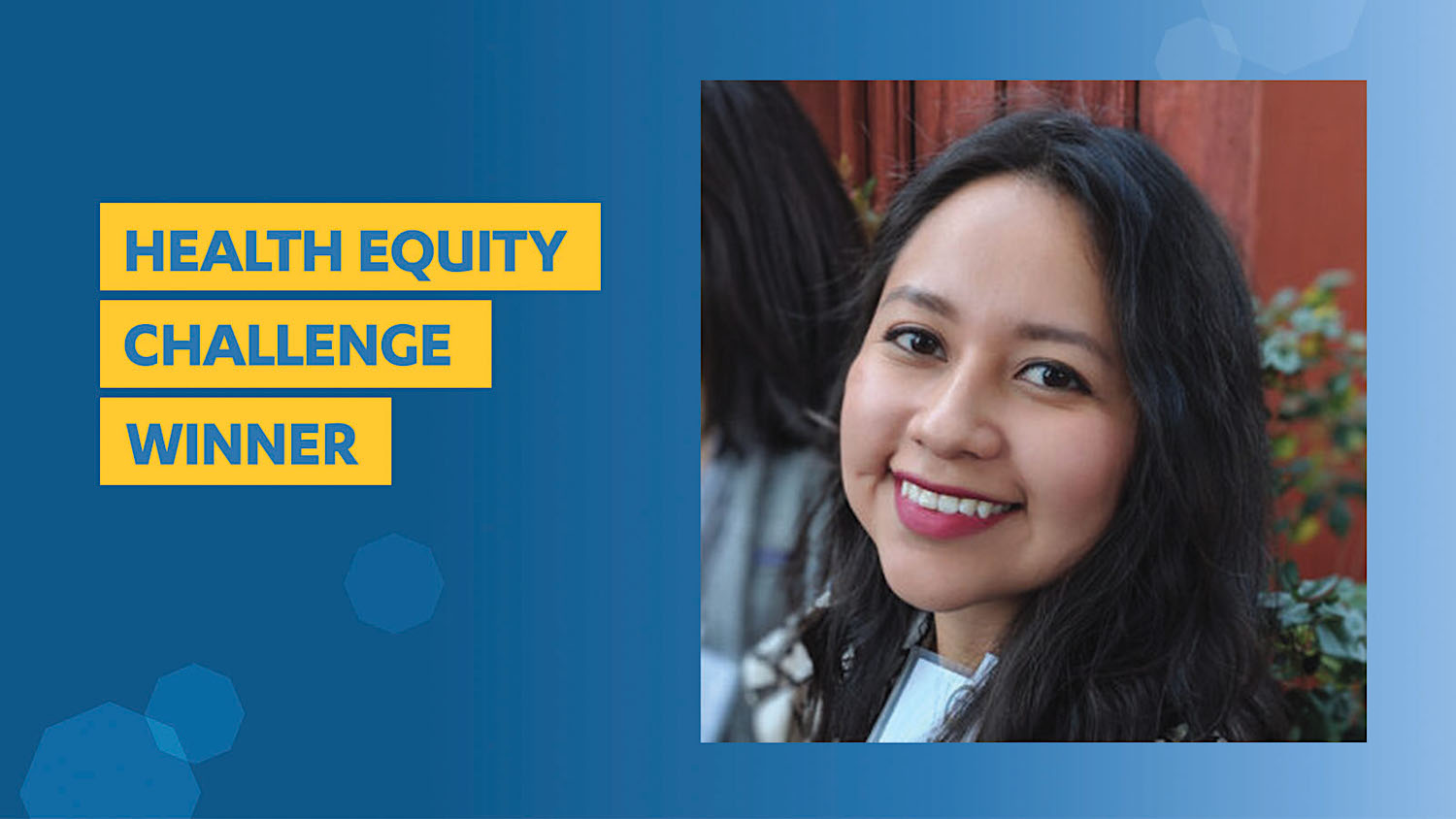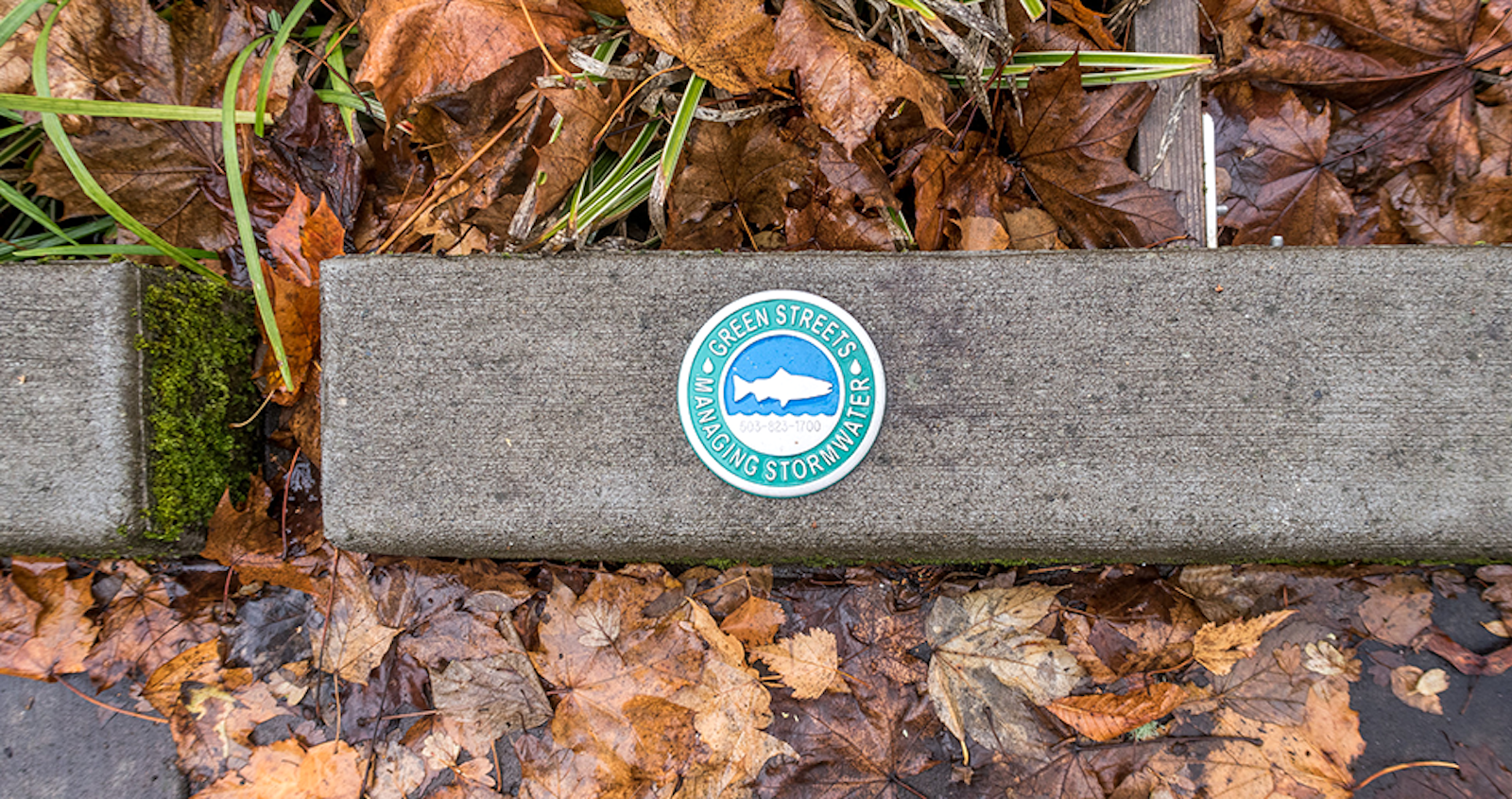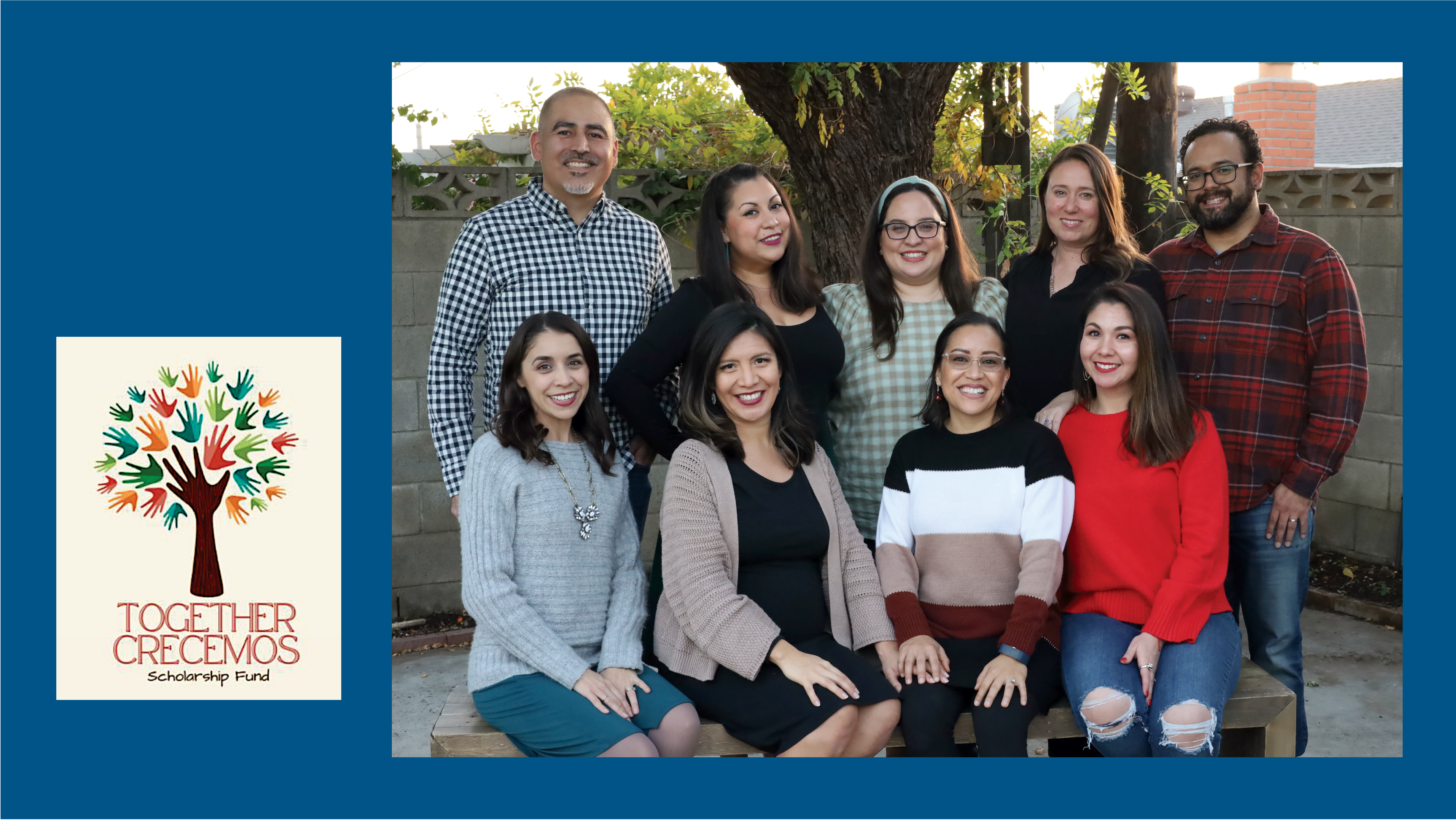Pivotal Role for Latino Voters in 2022 Midterms
The Latino electorate played a decisive role in key U.S. Senate races in 2020 and will again be crucial in determining outcomes in the 2022 midterm elections, according to a report published by the UCLA Latino Policy and Politics Institute. The report analyzed the choices of Latinos in 2020 Senate elections in five states where Latino voters were pivotal either because of their large numbers or the part they played in close races: Arizona, Colorado, Georgia, New Mexico and Texas. In all these states, Latino voters in 2020 supported Democratic Senate candidates by wide margins, yet a considerable number — between 2% and 10%, depending on the state — split their ballots between parties when choosing Senate and presidential candidates. These swing voters will likely be a critical segment in this year’s midterm elections, particularly in states like Arizona and Georgia where Senate races are currently considered toss-ups, the report’s authors said. The power of the Latino electorate is growing rapidly, with more than 1 million Latinos coming of voting age each year. Determining the future balance of power in the currently divided Senate and elsewhere will depend heavily on efforts to get out the Latino vote, said the institute’s founding director, Sonja Diaz. “Voting patterns show the critical role Latinos play in pivotal midterm elections, but these votes must be earned,” Diaz said. “Campaigns for House and Senate seats should ensure they are reaching the Latino electorate by addressing the needs of this community and utilizing tailored outreach techniques proven to result in voter mobilization.” — Rodrigo Dominguez-Villegas
MPP/MD Student Wins Health Equity Challenge
The inaugural Health Equity Challenge, a competition among UCLA graduate students aimed at developing community-based solutions to health equity issues in California, has given one of two grand prizes to Alma Lopez, who is pursuing a dual master of public policy and doctor of medicine degree. Lopez partnered with the South Los Angeles nonprofit SHIELDS for Families to develop a proposal to provide online peer support, in English and Spanish, for mothers of color who are experiencing perinatal depression. Thanks to the Health Equity Challenge, made possible by the UCLA Center for Health Policy Research and the MolinaCares Accord, SHIELDS will receive $50,000 to implement the pilot program. “If successful, this could serve as a model for group interventions to address maternal mental health conditions in other urban communities of color,” said Lopez, an aspiring OB-GYN. The competition invited graduate students to submit applications proposing innovative interventions to address health equity issues in the state. Ten finalists received $2,500 stipends and 10 weeks of mentorship to develop a full project proposal. The two grand prize winners, Lopez and UCLA medical school student Angelica Johnsen, were announced in June. Other finalists with connections to UCLA Luskin include Lei Chen, a social welfare doctoral student whose proposal sought to meet the needs of older immigrant adults seeking health care and social services; and Annalea Forrest MSW/MPH ’22, who proposed building an integrated health platform to bring psychotherapeutic services, trauma-informed exercise and nutritional counseling to marginalized communities Los Angeles.
Stormwater Management as a Tool for Urban Greening
New research supported by the UCLA Luskin Center for Innovation and the National Science Foundation demonstrates how local stormwater management efforts can contribute to wider environmental protection work. Managing stormwater is an important task for cities as runoff from heavy rain can cause flooding and pollute waterways if not managed properly. So how do water managers — such as engineers, public works employees and others who make decisions about water — choose among different stormwater options? In the new study, researchers from the Luskin Center for Innovation, UC Davis, Kent State University and Colorado State University surveyed 185 stormwater professionals from Cleveland, Ohio, and Denver, Colorado, to find out. The researchers identified two main types of water managers: “traditional technocrats” motivated by human-centric priorities, such as property value, aesthetics and recreation, and environmental “champions” who favor urban greening projects such as rain gardens, which can replenish groundwater supplies, among other benefits. This distinction can be useful to policymakers who want to advance urban greening goals through stormwater management. “Cities often use stormwater management regulations as an entry point for broader greening goals, leaving on-the-ground decisions about how that happens to professionals,” said lead researcher V. Kelly Turner, co-director of the Luskin Center for Innovation. “This indirect approach to land management is more likely to be effective if water professionals prioritize urban greening.” The study was published in the Journal of the American Water Resources Association.
Social Welfare Alumni Come Together to Support Students
A group of MSW alumni who have sustained a close bond developed during their time at UCLA Luskin turned their camaraderie into a commitment to support current students. Nine members of the class of 2011 launched the Together Crecemos Scholarship Fund to provide financial assistance to a first-year Social Welfare student who is committed to promoting equity, championing social justice and contributing to the community. The inspiration for the fund, whose name means “Together We Grow,” came during the COVID-19 pandemic, when the group met virtually each week for support and encouragement. They inaugurated the scholarship program in 2021, and the first award was in the amount of $2,011, a nod to their graduation year. The award winner is Julia Cocilion, who impressed the alumni with her moving personal story and vision to engage in equitable social work practices, said Bridgette Amador, one of the alumni organizers. “It was a joy to learn more about the first-year students from their applications and to see the high caliber of students in the UCLA MSW program,” Amador said. “We hope to continue to grow the scholarship fund for years to come.” Pictured are members of the Together Crecemos alumni group: top, from left, Refugio Valle, Christy Perez, Malena Traverso French, Bridgette Amador and Carlos Amador; bottom, from left, Susana Ochoa-Valle, Jacqueline Perez Robledo, Jessica Tovar and Natalie Bibriesca-Mercado.
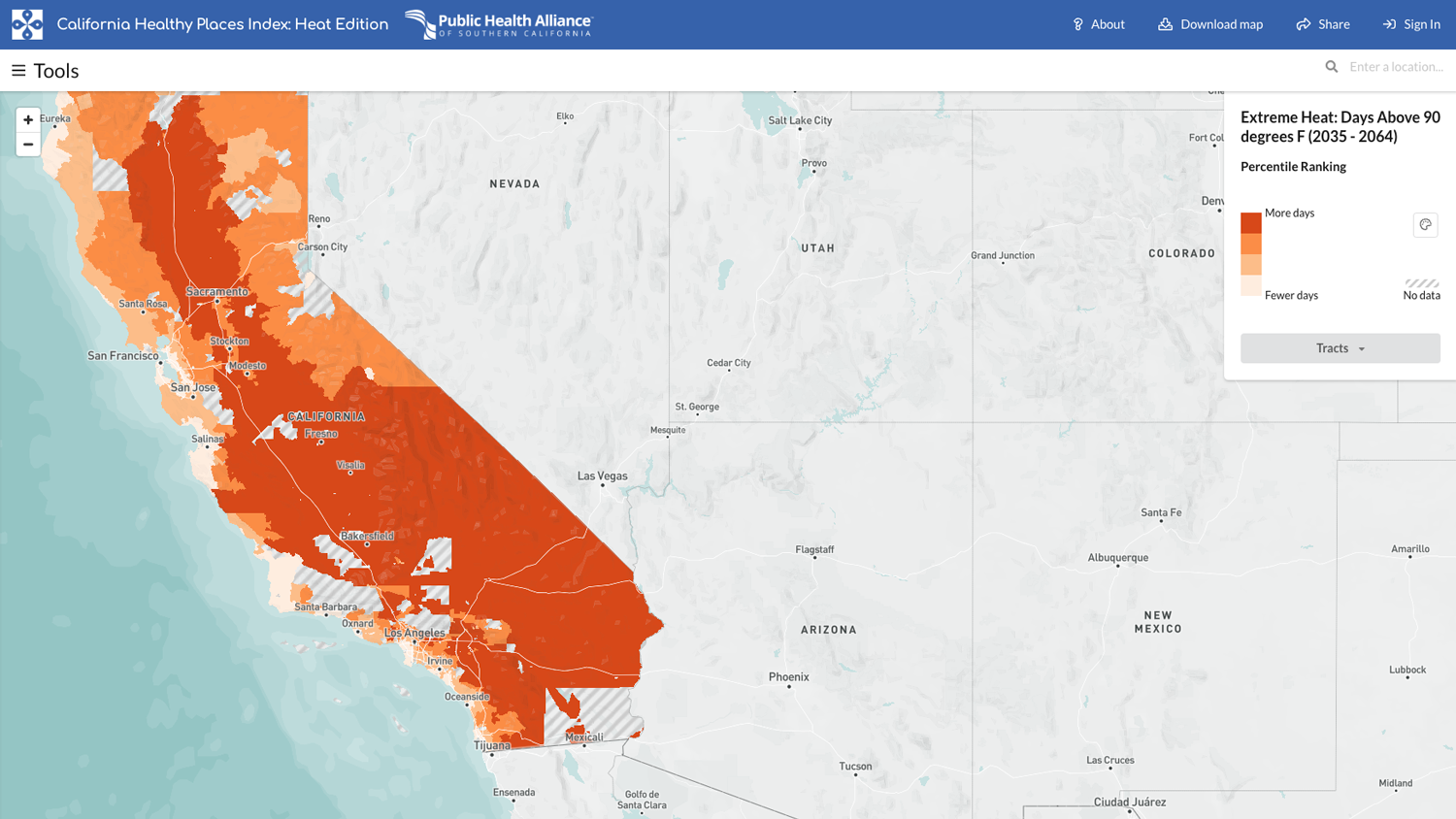
New Online Mapping Tool Helps California Prepare for Extreme Heat
As summer kicks off and California braces for more record-breaking temperatures, a new tool co-developed by UCLA researchers will help government officials, school administrators and communities visualize the neighborhoods most in danger from extreme heat. Low-income residents and communities of color are impacted most by hot weather, which is the deadliest effect of climate change in California. “Heat is an equity issue. Neighborhood by neighborhood, we’re going to be experiencing heat differently,” said Colleen Callahan, co-executive director of the UCLA Luskin Center for Innovation. “That’s why it’s important to identify where protections are most needed, and where they’ll have the biggest impact.” The online mapping tool developed by UCLA and the Public Health Alliance of Southern California allows users to find information about temperature extremes, explore vulnerable populations, understand community health situations and seek out state resources such as air conditioners for low-income households. Researchers created the tool with a variety of audiences in mind. For instance, data at the school district level can help educators understand how their risk compares to nearby districts. They can also identify funding programs to weatherize classrooms and playgrounds. Other users, like state agencies, nonprofit organizations, and local and tribal governments, can use the tool to identify where to target investments. At the household level, residents can find programs to make their homes more energy efficient, help pay for energy costs or install rooftop solar panels to provide cheaper electricity. The California Strategic Growth Council’s Climate Change Research Program provided funding.
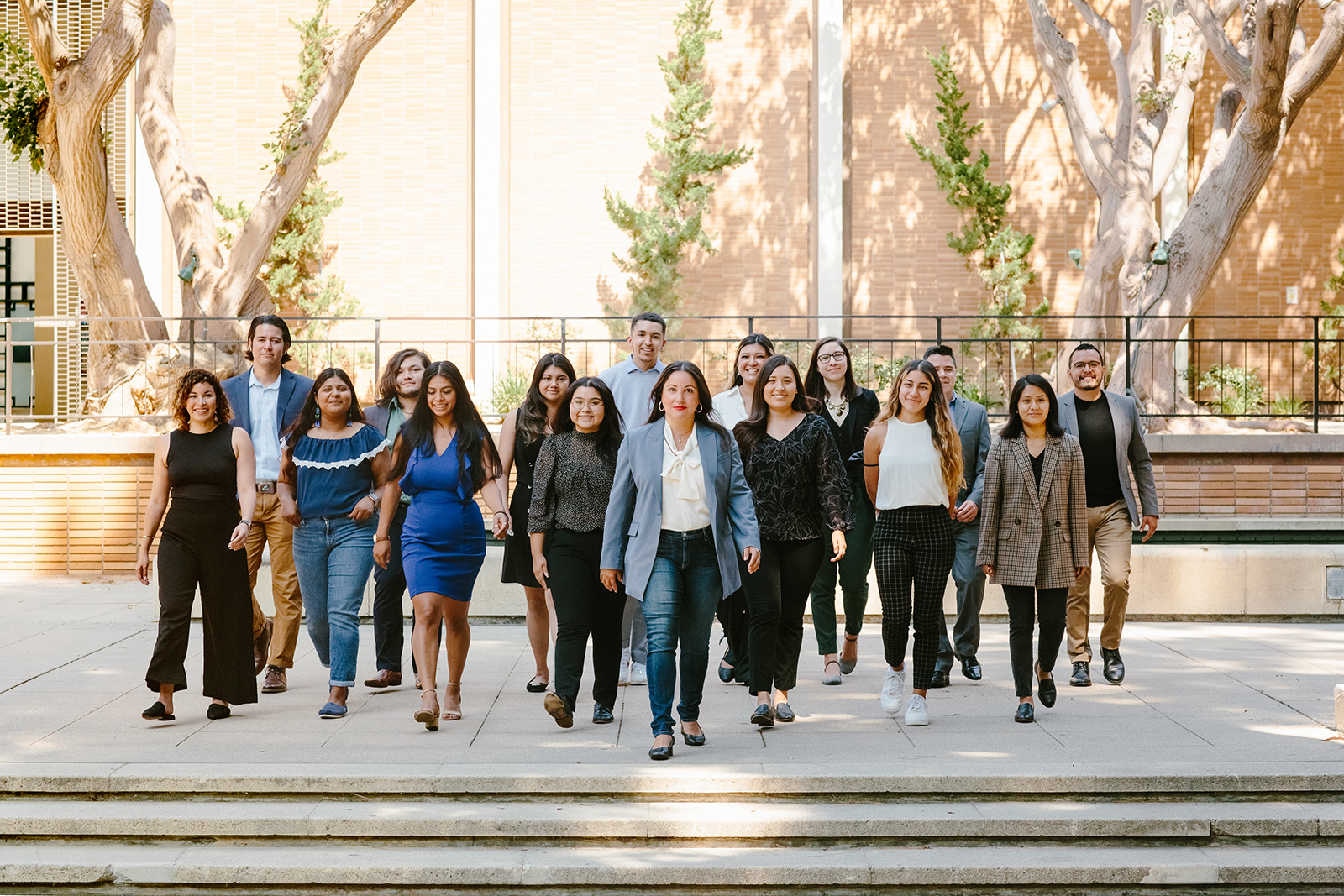
LPPI Formally Transitions From an ‘Initiative’ to Become UCLA Latino Policy and Politics Institute
The former UCLA Latino Policy and Politics Initiative has officially become the UCLA Latino Policy and Politics Institute, thanks to $3 million in ongoing annual funding from the state. The funding, championed by the California Latino Legislative Caucus, was initially secured in 2021 and continued in the state budget bill passed June 14. The support has allowed the institute, known as LPPI, to grow from a start-up initiative to a permanent research fixture at UCLA with a robust fellowship program and a consortium of nearly 50 faculty experts across UCLA. Founded in 2017 by attorney and MPP alumna Sonja Diaz and UCLA Professor Matt Barreto through a partnership between the Luskin School and the division of social sciences, LPPI was launched to address domestic policy challenges facing Latinos and other communities of color. It utilizes the power of research, advocacy, mobilization and leadership development to propel policy reforms that expand opportunity for all Americans. “As chair of the Latino Legislative Caucus, I am so grateful for the Latino-centric research from LPPI that has helped us formulate the policies our communities need most,” said state Sen. María Elena Durazo. “Latinos play an essential role in California, yet we are disproportionately impacted by issues like the gender pay gap and disparate health outcomes. It is critical that we have a Latino-focused think tank with readily available data on the various topics that Latinos care about most.” LPPI’s status as a leading national Latino policy institute furthers UCLA’s goal of achieving federal designation as a Hispanic-Serving Institution by 2025. — Alise Brillault

Science, Health Leaders Unite Around National Firearm Policy Reforms
A nationwide coalition of more than 1,200 leaders in science and health, including more than 450 members of the National Academies of Sciences, Engineering and Medicine, has submitted a letter urging the United States Senate to rapidly pass legislation advancing evidence-based approaches to reduce the toll of gun violence in America. The coalition, with Jody Heymann of the Fielding School of Public Health and UCLA Luskin Public Policy serving as lead author, calls for reforms in four key policy areas:
- prohibiting people who have committed violent crimes or have domestic violence restraining orders from purchasing firearms;
- adopting child access prevention and safe gun storage laws, which studies show would reduce gun suicides and unintentional gun deaths among children and youths;
- requiring firearm licensing and training requirements, especially for people obtaining guns for the first time;
- taking action on large-capacity magazines as a way to significantly lower deaths in mass shootings.
Among the letter’s signatories are researchers from every region of the country, including college presidents and university deans. The health and science leaders also commend the recent bipartisan deal in Congress on a set of reforms that would begin to make progress in some areas. Heymann is a distinguished professor of health policy and management, public policy, and medicine and a former dean at the Fielding School. “Each of these recommendations has been studied through research comparing the experiences of states with and without certain laws over time—and the evidence is clear they work,” she said.
